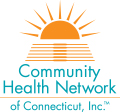Quit Smoking Now
There are many reasons why you should quit smoking, and the main one is your health. On this page you will find many good reasons to quit, along with important information and services.
Myth vs. Fact
Myth: Smoking is not harmful to my health.
Fact: Smoking is the leading preventable cause of death. More than 480,000 people die in the United States each year from smoking-related causes. Smoking causes many diseases, such as cancer, and heart and lung disease.1
Myth: Smoking only hurts the person who is smoking.
Fact: Over 40,000 nonsmoking adults and 400 infants die each year in the United States from exposure to secondhand smoke.1 There is no safe level of secondhand smoke exposure. Even brief exposure can harm nonsmokers, including infants and children.2
Myth: Switching to e-cigarettes will make me healthier without having to quit smoking.
Fact: E-cigarettes still contain toxic nicotine. They may also contain other harmful substances such as heavy metals and cancer-causing materials.3
Myth: I’ve been smoking for so long that quitting now will not help me.
Fact: Quitting smoking is good for your health. It doesn’t matter what age you are, how long you’ve smoked, or how often. Within 24 hours of quitting smoking, the nicotine level in your blood drops to zero. Quitting smoking can increase your life expectancy. It can lower the risk of developing 12 types of cancers and other serious diseases.4
Myth: Quitting smoking is impossible.
Fact: Quitting smoking is hard, but it isn’t impossible. It’s never too late to quit. Millions of people have quit smoking. In fact, there are more former smokers today than current smokers.5 Check out the resources below to help you quit.
1Centers for Disease Control and Prevention (CDC). (2024). Cigarette smoking. Retrieved from https://www.cdc.gov/tobacco/about/index.html
2Centers for Disease Control and Prevention (CDC). (2024). Health problems caused by secondhand smoke. Retrieved from Centers for Disease Control and Prevention (CDC). (2024). About E-Cigarettes (Vapes). Retrieved from
3Centers for Disease Control. (2020). Smoking & Tobacco Use: Benefits of Quitting. Retrieved from https://www.cdc.gov/tobacco/e-cigarettes/about.html
4Centers for Disease Control and Prevention (CDC). (2024). Benefits of quitting smoking. Retrieved from https://www.cdc.gov/tobacco/about/benefits-of-quitting.html#cdc_generic_section_2-health-benefits-of-quitting-smoking
5Centers for Disease Control and Prevention (CDC). (2024). Smoking cessation: Fast facts. Retrieved from https://www.cdc.gov/tobacco/php/data-statistics/smoking-cessation/index.html#cdc_research_or_data_summary_res_data-u-s-adult-smoking-cessation-behaviors
HUSKY Health Covered Services to Help You Quit Smoking
Ask your Primary Care Provider (PCP) about the many treatment options and support available for you in the community and online to help you quit smoking. These resources can also help prevent a setback in your effort to quit. The following are the three main ways we can help you quit smoking:
1 Counseling
- You can participate in individual (face-to-face) counseling or group counseling (in a group with others trying to quit).
- The combination of counseling and medication works better to help stop smoking than either medication or counseling alone.
- You can have counseling over the phone (CT Quitline) or face-to-face visits with your PCP.
- Multiple counseling sessions have led to better success with quitting smoking.
- Combining more than one type of counseling can improve your chances of quitting.
- For free help or information about quitting, call the CT Quitline at 1.800.784.8669.
2 Nicotine Replacement Products
Nicotine Replacement Products come in several forms, such as:
- Gum
- Inhalers
- Lozenges
- Nasal Spray
- Patch
Your PCP can help you decide which product will work best for you.
3 Prescription Medications
- Prescription options include Bupropion SR (Wellbutrin XL) and Varenicline (Chantix).
- These medications may have side effects based on your medical history. Your PCP can help you determine which medication is best for you.
- Prescription medications and nicotine replacement products can be used together. Talk with your PCP about the options.
- If you’re pregnant or breastfeeding, quitting smoking will benefit you and your baby. Always talk to your PCP before taking any quit-smoking medications or nicotine replacement products.6
6Smokefree.gov. (n.d.). Quit for two. Retrieved from https://women.smokefree.gov/pregnancy-motherhood/quitting-while-pregnant/quit-for-two
This portion of the HUSKY Health website is managed by Community Health Network of Connecticut, Inc.®, the State of Connecticut’s Medical Administrative Services Organization for the HUSKY Health Program. For the general HUSKY Health website gateway, please visit portal.ct.gov/husky. HUSKY Health includes Medicaid and the Children’s Health Insurance Program, and is administered by the Connecticut Department of Social Services.


 There are many reasons why you should quit smoking, and the main one is your health. On this page you will find many good reasons to quit, along with important information and services.
There are many reasons why you should quit smoking, and the main one is your health. On this page you will find many good reasons to quit, along with important information and services. 